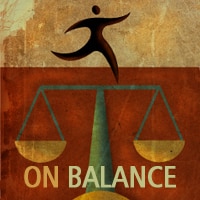Trust accounting has always been a hot topic for ethics regulators. Understandably, of course, since how lawyers handle their clients’ money goes not only to the heart of the trust between a lawyer and a client, but it can also have wide-ranging ramifications for the public’s perception of the profession. None of us are well-served by headlines about lawyers stealing or mishandling clients’ money.
Right now trust accounting is getting a fresh wave of attention in California as the state bar (the ethics regulator in that state) considers whether to begin instituting random trust account audits.
Concerns Raised by the Specter of Random Audits
Random trust account audits raise a number of concerns for lawyers who make it their business to pay attention to these sorts of issues and to provide their comments and opinions to regulators.
For one, if the bar will be able to demand accounting records at any time from any attorney without an ethics complaint being filed by the client, how can the attorney maintain the client’s privilege? It seems impossible to be able to satisfy an audit without divulging to the bar the identity and amounts paid and billed (and possibly the substance of those bills), disclosures with great potential for violating privilege.
Recently, I overheard a lawyer say that the fact she represents a specific individual is itself privileged. She won’t be able to protect that privilege in the midst of a random trust account audit.
And what if the bar has questions that go beyond the records provided by the lawyer? Might they contact the attorney’s clients? Such contact would surely interfere with the attorney-client relationship, and quite possibly raise unjustified suspicion.
Unreasonable Ramifications of Harmless Errors
Here’s another reason random trust account audits are a bad idea. In most lawyers’ practices there are times when errors are made, caught and corrected, with no harm done to the client. Some of these errors, inadvertent and harmless as they may be, are technically violations of trust accounting rules and, in theory, could be the basis of ethics charges against the lawyer. Absent random trust account audits, these errors remain undisclosed and harmless — as they usually should be.
In some states, certain errors are reported immediately to the state bar, such as when a trust account is overdrawn for any reason. This can be a problem already, even without random audits, since overdrafts can result from bank errors, for example. Consider, for instance, that a trust account might be erroneously charged a fee, such as a check-printing charge that the bank had promised to waive, which could cause the account to be overdrawn. If reported to the bar, this error could cause serious trouble for the attorney.
Errors could easily be the result of human mistakes, either at the bank or in the lawyer’s office. What if, for example, a client check is deposited into the wrong account but then immediately transferred to the right one? If a check is handed to a bank teller with the lawyer’s trust account number endorsed on the back, and the teller accidentally deposits it into the lawyer’s operating account instead, even if the transaction is immediately corrected, the lawyer has technically commingled the client’s funds with his own. Commingling is a major disciplinary issue.
Simple errors should be able to be corrected without becoming a major issue either for the lawyer, who is subject to discipline, or for the state bar, which will expend resources chasing non-events.
Consider also that mistakes that technically rise to the level of violations — despite the unreasonableness of that characterization — could give regulators ammunition to prosecute attorneys who have otherwise found themselves in the regulators’ crosshairs. It is always concerning to see the potential for politically motivated misuse of regulation.
What Is Appropriate?
If random trust account audits raise all these concerns, how are ethics regulators to keep tabs on how lawyers handle client funds? They should leave enforcement of trust accounting rules to the system of client complaints, bar investigations and prosecutions. If there is a problem with how a client’s money is handled, you can be sure that the client will notify the bar. Then the regulator can investigate, prosecute and rectify the problem with the attorney.
Random trust account audits are simply not the answer, both for the concerns of privilege protection and the likelihood of unreasonable and unnecessary prosecutions.
Megan Zavieh focuses her practice exclusively on attorney ethics, providing limited scope representation to attorneys facing state bar disciplinary action, and providing guidance to practicing attorneys on questions of legal ethics. She has been representing attorneys facing disciplinary action before the California State Bar since 2009 and is admitted to practice in California, New York and New Jersey, as well as in Federal District Court and the U.S. Supreme Court. She blogs at California State Bar Defense and is a contributor at Lawyerist.com.
In her “On Balance” column for Attorney at Work, Megan writes about the ethics issues and professional quandaries confronting lawyers in the new world of practicing law.
Sponsored Links
»What’s Next in Legal Marketing: Lawyernomics 2014, April 23-25, Las Vegas.
»Start Saving Time: Top cloud-based practice management software.
»Manage my legal practice from anywhere on any device—HoudiniEsq.
»Learn more about the easiest way to get paid.
»Manage your practice with ease, for one small fee.
»Work from anywhere. Intuitive legal practice management software. Free trial.
Illustration ©ImageZoo.























